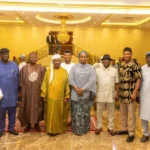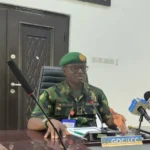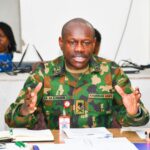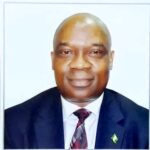Negotiators
Tensions remain high in the aftermath of a coup in Niger Republic as the military junta refused entry to a negotiating mission planned for Tuesday by the United Nations, Economic Community of West African States (ECOWAS) and the African Union (AU).
The military governments of Mali and Burkina Faso have called on the UN Security Council to prevent military action against the putschists in their neighbouring country Niger.
ECOWAS threatened this as a possible reaction to the coup d’état at the end of July in which the military seized power in Niger, suspended the constitution, and imprisoned the president.
In Tuesday’s letter, Malian Foreign Minister Abdoulaye Diop and Burkinese Foreign Minister Olivia Rouamba addressed the UN’s most powerful body as well as the African Union.
“The transitional governments of Burkina Faso and the Republic of Mali appeal to the primary responsibility of the (UN) Security Council as guarantor of international peace and security to prevent, by all means at its disposal, armed action against a sovereign state, the consequences of which would be unforeseeable in their magnitude,” the letter reads.
The aim is “to avoid, in addition to the deterioration of the security situation with the multiplication and spread of terrorist groups, a humanitarian tragedy, which would add to the difficulties of a population legitimately waiting for support.”
Both Mali and Burkina Faso are currently suspended from ECOWAS following coups and have clearly sided with the military rulers in Niger.
They declared that they would not support the ECOWAS sanctions and that any military action would be seen as a “declaration of war” against their own states.
Mali’s Diop caused a stir at the UN Security Council in New York in June when he called for the immediate withdrawal of the UN peacekeeping mission that has been stationed in Mali for a decade.
Coming from Libya and northern Mali, Islamist terrorist groups have been spreading in the three bordering countries since 2012.
The U.S. government said it continues to hope for a diplomatic solution after the coup in Niger but at the same time it is realistic, U.S. State Department spokesman Matthew Miller said in Washington on Tuesday.
U.S. diplomat Victoria Nuland spoke with members of the junta in the capital Niamey on Monday, but was not allowed to meet either the detained President Mohamed Bazoum or the military ruler General Abdourahamane Tchiani.
Tchiani received a delegation from Mali and Burkina Faso on Monday, who assured him of their support.
The junta announced a prime minister and other posts late on Monday night.
Ahead of the special ECOWAS summit on the coup in Niger, Nigeria has underscored its hope for a negotiated solution.
President Bola Tinubu believes “diplomacy is the best way forward” to resolve the crisis, his spokesman Ajuri Ngelale said on Tuesday.
“This represents “the consensus position of the ECOWAS heads of states,” he said.
Tinubu is currently ECOWAS chair. At the summit, “far-reaching decisions will be taken concerning the next steps the regional bloc will take,” the spokesman said.
He added that “no options have been taken off the table.”
The federation of currently 11 states plans to meet in Nigeria’s capital Abuja on Thursday.
The military chiefs of the ECOWAS countries had presented a plan for a possible intervention last week.
Besides Nigeria, Benin, Senegal, and Ivory Coast have declared their readiness for military intervention.
The French broadcaster RFI reported on Tuesday that the plans included a force of 25,000 soldiers.
The military governments of Mali, Burkina Faso, and Guinea, which were suspended by ECOWAS after coups, support the putschists in Niger.
Malian Minister of Territorial Administration Abdoulaye Maïga reaffirmed after his meeting with General Tchiani in Niger on Monday “the active, effective and full participation of Mali and Burkina Faso in legitimate defence operations in the event of an ECOWAS attack on Niger.”
On July 26, officers of the presidential guard in Niger ousted the democratically elected Bazoum.
The commander of the elite unit, Tchiani, subsequently appointed himself the new ruler, then the putschists suspended the constitution and dissolved all constitutional institutions. (dpa/NAN) (www.nannews.ng)
=============
(Edited by Emmanuel Yashim)











